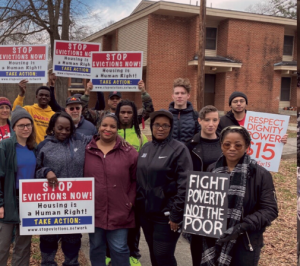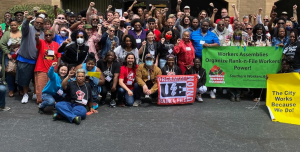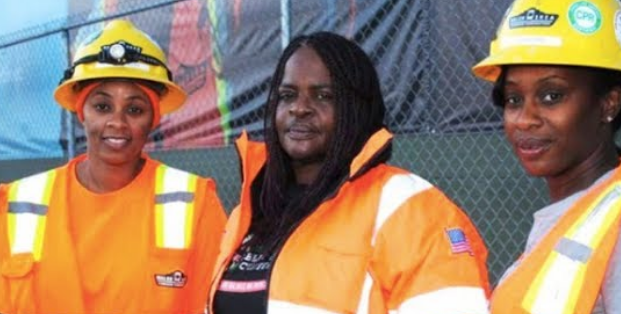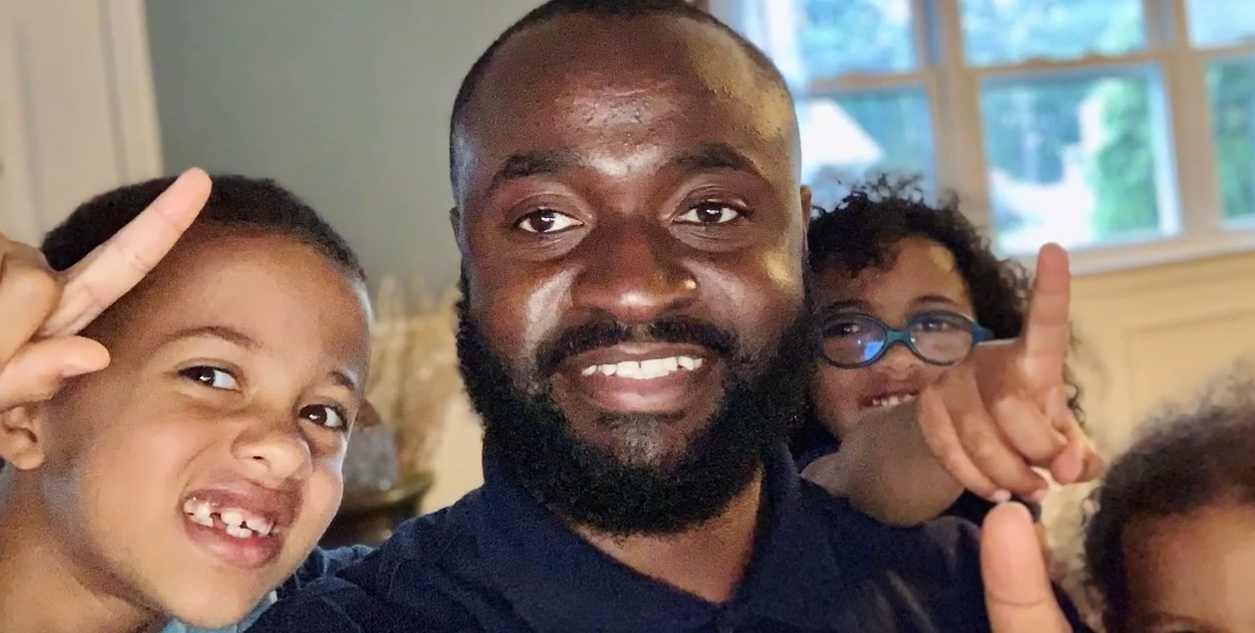By Joint Center
Photos: U.S. Bureau of Labor Statistics\YouTube Screenshots\Black Workers For Justice
The Joint Center for Political and Economic Studies today introduced “Improving Policy Narratives for Young Black Workers.” This project is a collection of 13 messaging principles developed from insights from a task force of 11 young Black workers, focus groups, and a thorough media analysis. These recommendations shed light on how educational systems, labor market institutions, and policy frameworks have failed young Black workers’ transitions into the labor force. These messaging principles will help stakeholders including journalists, advocates, scholars, practitioners, and policymakers better address issues facing young Black workers in today’s economy.

In 2022, the Joint Center brought together 11 young Black people with four-year college degrees working 40 hours a week in entry-to-mid-level professional roles to form the Black Youth Worker Task Force. The task force informed and guided the narrative solutions through their lived experiences and peer observations. The task force members are: Cierra Baker, Reshad Daniels, Donovan Hunt, Grant (G.E.) Loveless, Nasir Mack, Evan Wayne Malbrough, Ciarra Malone, Morgan Mitchell, Ian Moet, Kaylah Oates-Marable, and Sando Zou-Capuzzi.
“Starting this project back in 2022 and witnessing the task force members’ continuous growth as they navigate adulthood has been a transformative experience in itself. Their evolving outlook on the workforce and the challenges facing young Black people in today’s economy have been essential in shaping the recommendations we’re presenting,” said Justin Nalley, Workforce Policy senior policy analyst who helped lead this project and is a webinar participant. “Our initiative set out to develop narrative frameworks and messaging strategies centered around young Black workers, ensuring we engaged with our key audiences, including policymakers and partners in the workforce policy space. By utilizing the insights curated from the task force, focus group, and media analysis, we’ve created key principles that will be a catalyst for repositioning Black youth in the public sphere as assets.”
To begin the second phase of this project, the Joint Center hosted a webinar today to share the findings from the task force, focus groups, and media scan. Malbrough and Baker participated in the discussion. They shared first-hand experiences of narratives used in the workplace and provided solutions for how employers, policymakers, funders, and media should be talking about young Black workers.
“Young Black workers are often put under a microscope, with the expectation to be excellent while simultaneously having our abilities undermined and stereotyped. My hope is that policymakers embrace these frameworks and understand the diversity in our needs and abilities,” said Evan Wayne Malbrough, Black youth worker task force member and full-time employee in education, advocacy, and policy, and a webinar participant.
“Young Black workers can be viewed as uneducated or unqualified or maybe even lazy. I think that a lot of my friends have done everything that we could to put ourselves in the best positions to be successful, especially when it comes to getting all the experience to prepare ourselves for the line of work that we decided to go into,” said Cierra Baker, Black youth worker task force member, full-time nonprofit employee, and a webinar participant. “It was important for me to participate in this project because I want employers to know that we need the same chances [as non-Black workers] to get those internships and extra hours or that experience to build our resume.”
“I participated in this project because I felt it was necessary to shed light on how young Black workers are treated and perceived in the workplace, but more importantly to change the narrative surrounding our abilities,” said Morgan Mitchell, Black youth worker task force member and law student. “I firmly believe that building a truly inclusive workplace requires dismantling all the systemic injustices that young Black workers face, and part of that includes going beyond hiring diverse candidates, but also promoting us and providing a space that supports professional development. This project is a vital step in bringing these changes.”

The 13 key principles include:
-
Address the connections between racial divisions and economic hardship.
-
Unite under the notion that racism is a tool to divide us all.
-
Explicitly connect racial and economic justice.
-
Trace the history of systemic injustice and connect individual stories to systemic injustice rather than blaming individuals.
-
Lead with shared values.
-
Contextualize the problems facing young Black workers.
-
Define villains or economic bad actors who have led to the current conditions faced by young Black workers.
-
Tell stories that promote systems level change, rather than individual-level change.
-
Tie policy solutions to shared prosperity.
-
Focus on asset-based framing.
-
Offer well-rounded portraits of young Black people in every group and social background.
-
Include the voices of those closest to the problem.
-
Focus on the stories of young Black workers, not just the numbers.
Additional webinar speakers included Dedrick Asante-Muhammad, president of the Joint Center; Dr. Kayla C. Elliott, director, Workforce Policy, Joint Center; Senator Laphonza Butler (D-CA); Satra Taylor, director of Higher Education and Workforce, Young Invincibles; and Wisdom Cole, national director of the NAACP Youth & College Division.
To learn more about the project, click here.









